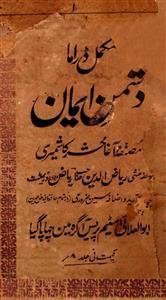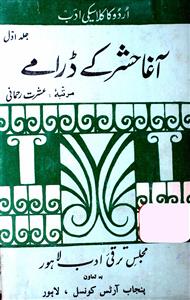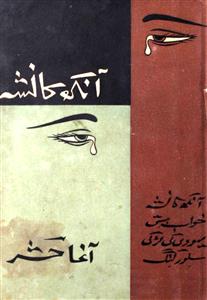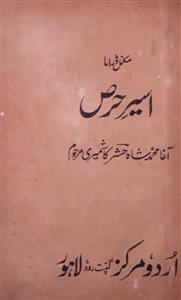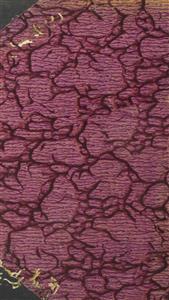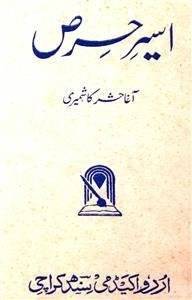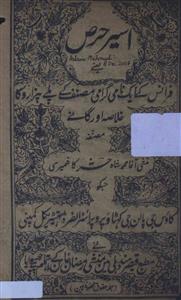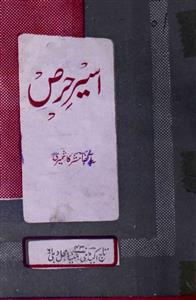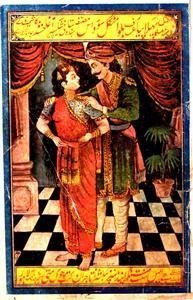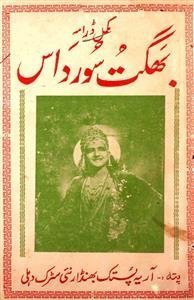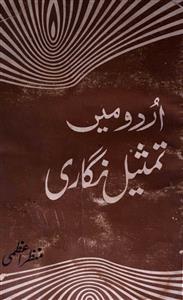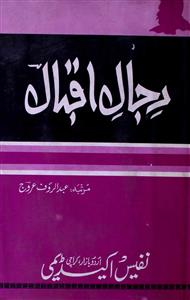 For any query/comment related to this ebook, please contact us at haidar.ali@rekhta.org
For any query/comment related to this ebook, please contact us at haidar.ali@rekhta.org
About The Author
Agha Hashr Kashmiri was born Agha Mohammad Shah. His father, Ghani Shah, had migrated from Kashmir to Benares looking for better business prospects and chose to settle there finally. Agha Hashr was born there in mohalla Gobind Kalan, Naryal Bazar on April 01, 1879.
Agha acquired his early education in Arabic and Persian and also memorized sixteen books of the Holy Quran by heart. Following this, he was sent to Jai Narayan missionary school for further studies. Since he was not much interested in regular studies based on a given syllabi, he left his education incomplete.
Agha was naturally inclined towards drama and poetry since his childhood. He started composing verse at the age of seventeen and also wrote a play called Aaftaab-e-Mohabbat when he was eighteen. When he showed it to Mehdi Ahsan Lucknowi, he received an utterly sarcastic comment from him that writing plays was no child’s play. Agha took his words as a challenge and answered this challenge in the future years by drawing upon his astonishing creative resources and pursuing his art with total commitment. This ultimately helped him acquire a name for himself in the annals of Urdu drama. In fact, no history of Urdu drama can ever be complete without a mention of his works. None of his predecessors, contemporaries, or even the successors could achieve the kind of respect and inimitable success that came to his share.
Agha Hashr remained associated with several theatre companies and each one of them valued his talent. He got a chance to write plays for Alfred Theatrical Company. The plays he wrote for this company proved very successful and they were well reviewed in the newspapers. This also led to his personal benefit and resulted in substantial increase in his salary.
Agha wrote plays in Urdu, Hindi, and Bangla. Some of these were solely created by him but others were based on the plots of select Western plays. His more important plays that he based on Shakespeare include Shaheed-e-Naaz, Said-e-Hawas, Safaid Khoon, and Khwab-e-Hasti. Some of his plays that drew upon the stories of Ramayana and Mahabharata also proved very popular.
 For any query/comment related to this ebook, please contact us at haidar.ali@rekhta.org
For any query/comment related to this ebook, please contact us at haidar.ali@rekhta.org
Write a Review
Jashn-e-Rekhta 10th Edition | 5-6-7 December Get Tickets Here
